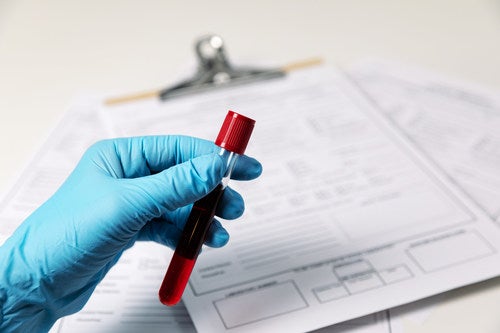
Datar Cancer Genetics has announced that its TriNetra blood test to detect early-stage breast cancer has secured breakthrough device designation from the US Food and Drug Administration (FDA).
TriNetra uses a company-developed technology to identify circulating tumour cells (CTCs) that are specific to breast cancer.

Discover B2B Marketing That Performs
Combine business intelligence and editorial excellence to reach engaged professionals across 36 leading media platforms.
Studies have indicated that the blood test can detect Stage 0 (DCIS) and Stage 1 cancers with high accuracy.
In a statement, Datar Cancer Genetics said: “The company believes that detection of CTCs is the most dependable and accurate method for early detection of cancer as it enables capture and characterisation of functional components of a tumour rather than fragments of dead cells.
“In that sense, CTCs represent a true non-invasive micro-biopsy.”
The CE-marked TriNetra blood test is already available in Europe.

US Tariffs are shifting - will you react or anticipate?
Don’t let policy changes catch you off guard. Stay proactive with real-time data and expert analysis.
By GlobalDataIt requires 5ml blood and can be used to test asymptomatic women above 40 years of age with a physician’s prescription.
Datar Cancer Genetics executive director Dr Vineet Datta said: “We are pleased that the FDA has recognised the potential of TriNetra for the detection of early-stage breast cancer.
“We believe that TriNetra will offer definitive advantages for breast cancer screening once it receives marketing authorisation from the FDA.”
The breakthrough device designation is awarded to medical devices that show potential for a more effective diagnosis of life-threatening diseases, such as cancer. The designation expedites the development and subsequent review of the device.
In the US, more than 250,000 women are diagnosed with breast cancer every year.
Earlier in the year, researchers at New York University (NYU) Langone Health in the US developed an artificial intelligence (AI) tool to improve breast cancer detection accuracy.





